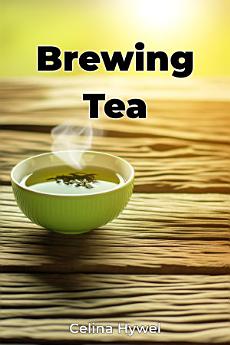Brewing Tea
About this ebook
The book stands out by bridging ancient practices and clinical research. For example, it details how matcha’s high EGCG content neutralizes free radicals, while herbal teas like peppermint can ease digestive discomfort. Structured for clarity, early chapters demystify tea varieties and their unique compounds, followed by deep dives into specific benefits—like black tea’s anti-inflammatory theaflavins or chamomile’s role in gut-brain communication. Practical sections teach readers to optimize brewing methods for nutrient retention and craft personalized rituals, whether for morning energy or evening relaxation.
What makes Brewing Tea unique is its balance of rigor and accessibility. It translates complex biochemistry into actionable advice, like pairing teas with meals or decoding processing terms, without oversimplifying the science. By weaving historical anecdotes—such as Japanese tea ceremonies or Ayurvedic blends—with peer-reviewed studies, the book invites readers to savor tea as a mindful, health-enhancing practice rather than a mere beverage.








